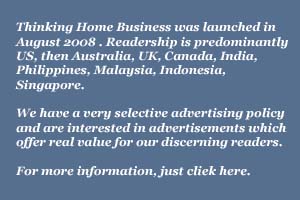We need to talk about Friends, Fans, “Likers”, Connectors and Followers
 I love networking on the social web, as I do in real life. And I love having lots of friends and connections. In both realms I get great personal satisfaction out of being able to facilitate connections between people.
I love networking on the social web, as I do in real life. And I love having lots of friends and connections. In both realms I get great personal satisfaction out of being able to facilitate connections between people.
But I must admit that, for all that I have been participating actively online, one way or another, and in various groups, for over fifteen years, I think I still know how it all works offline better than I know how it works online.
It’s partly a problem about language.
I blame Facebook
Before Facebook I used to know what a friend was and I used to have a pretty good sense of the gradations of friendship and how types and levels of friendships can change over time. With Facebook – and other social networking platforms – the word “friend” became totally debased. A “friend” came to equal a keystroke, accepting a request from someone you did not know, and if you met them in real life might not want to even know, let alone be friends with.
And my personal belief (which I am happy to have challenged) is that once we accepted that a “friend” on Facebook was not necessarily a “friend” in the sense we were used to, an expectation built up on the social web that anyone should be willing to connect with anyone else, unless, say, they had reason to believe the other might be an axe murderer or some other unsavory type.
But for the benefit of those folks who just came in, being able to operate effectively as a business person on the social web involves, when it comes to the notion of being a friend, something akin to what the poet Samuel Taylor Coleridge called a “willing suspension of disbelief” .
With other ways of connecting online – as a “fan”, as “liking” someone or their Facebook page, as a connector or follower – there is not such a semantic challenge, but there can be a cultural challenge and for business there is a strategic business challenge.
There are two short versions of this challenge, one negative, one positive:
a) Negative: “If I decline or ignore this invitation to connect, fan, like, follow or whatever, could that be construed as offensive or arrogant and could that be bad for business?”
b) Positive: “What should my approach be to building connections on the social web, whether through initiating or responding, so that it fits my business plan strategically?”
Experts disagree with me
There are many people on various networks, some of them apparently quite successful or even extremely successful in business, who accept all or most invitations, send many invitations and pride themselves on the number of connections they have made.
I’m more selective. I have been told often by some colleagues why I am mistaken, lacking in understanding of networking, or just plain wrong. I am unrepentant and unbowed.
I am consoled by statistics such as that, at this writing, my 635 first level connections on LinkedIn connect me to 12,951,796 people in the larger LinkedIn network: enough to keep me busy.
No short answer
I don’t believe there is a short answer to all this. I believe the right answer will be the one that fits the business strategy, so your right answer will almost certainly be different from the right answer for my business or even for the business of someone else in your industry.
There is no shortage of people who will offer to show you, whether gratuitously or for a price, how to do your social networking “the right way”. My aim as a social business mentor is to help businesses work out the right strategy for themselves and build their own capability to operate effectively in this space.
In this I am guided by the aphorism (with a bit of manipulation of the gender references):
“Give someone a fish and you feed them for a day: teach them how to fish and you feed them for a lifetime.” (Original author unknown)
Would you like more on this topic?
I want to do some more thinking and consider writing some more posts about this topic. If you have comments to make, want to agree, disagree, contradict, or share stories, I hope you will toss your contribution in the pot here to help me cook up something that can be useful to those of us who still, after all these years, are finding our way on the social web.
Image credit: “Good Friends, Béziers” Anne in Béziers photostream, Flickr, Creative Commons
Latest posts by Des Walsh (see all)
- Why I Love it – Sort of – When People Unsubscribe from My Updates - February 4, 2014
- Being Busy is OK, but it’s not an Excuse for Discourtesy - January 24, 2014
- Are You Using LinkedIn’s Power to Help Grow Your Business? - January 23, 2014





It’s working; good deal!
Thanks Jen and Mitch for your thoughtful comments.
And thanks Mitch for the heads up about the subscribe glitch: now hopefully fixed.
I’m pretty selective nowadays on who I accept as a friend on Facebook, but I wasn’t in the beginning. Now, since I want to be known more for business purposes than most anything else, if someone wants to connect with me whose page, since I go to look, seems like it wouldn’t fit my style, I just won’t add them; at least Facebook allows you to do that without notifying someone you’re not connected. One of these days I’m going to go through and eliminate some people I signed up with way back when who I never talk to; one step at a time, though.
By the way, sidebar, but my reader won’t let me subscribe to your feed. Something about a Parser error, whatever that means.
I really like this post and would like you to do more on it. I too am a selective connector and I have *rules*. This makes me very comfortable. But I understand that my rules are not always transparent. And can make others uncomfortable.
My rules?- Facebook is for social friends, alcohol usually has to be involved at some point. I am uncomfortable with family connections, and would prefer to keep this number low. But with the advent of tweetups (business networks that include alcohol) I am vexed. I console myself with the friend/business colleagues I have accepted aren’t really looking at my pics / comments etc. They are using FB differently to me.
Twitter – I follow anyone I find interesting, and I unfollow if I find the tweets are not offering value to me. I understand the importance of reciprocal follows – but I don’t cope so well with the noise. If some-one reaches out then I will probably follow and reach back. That’s the connection.
Linkedin – I accept people I have worked with, or would like to work with at some point, and people who my trusted connections have worked for and vouched for. Linkedin doesn’t work without trust. Well not for me.
At the end of the day my rules, whether explicit or not, won’t stop some-one who really wants to do business with me doing business with me. And those that are connections know that it is born of real respect, affection, or interest. That has to be good for business.